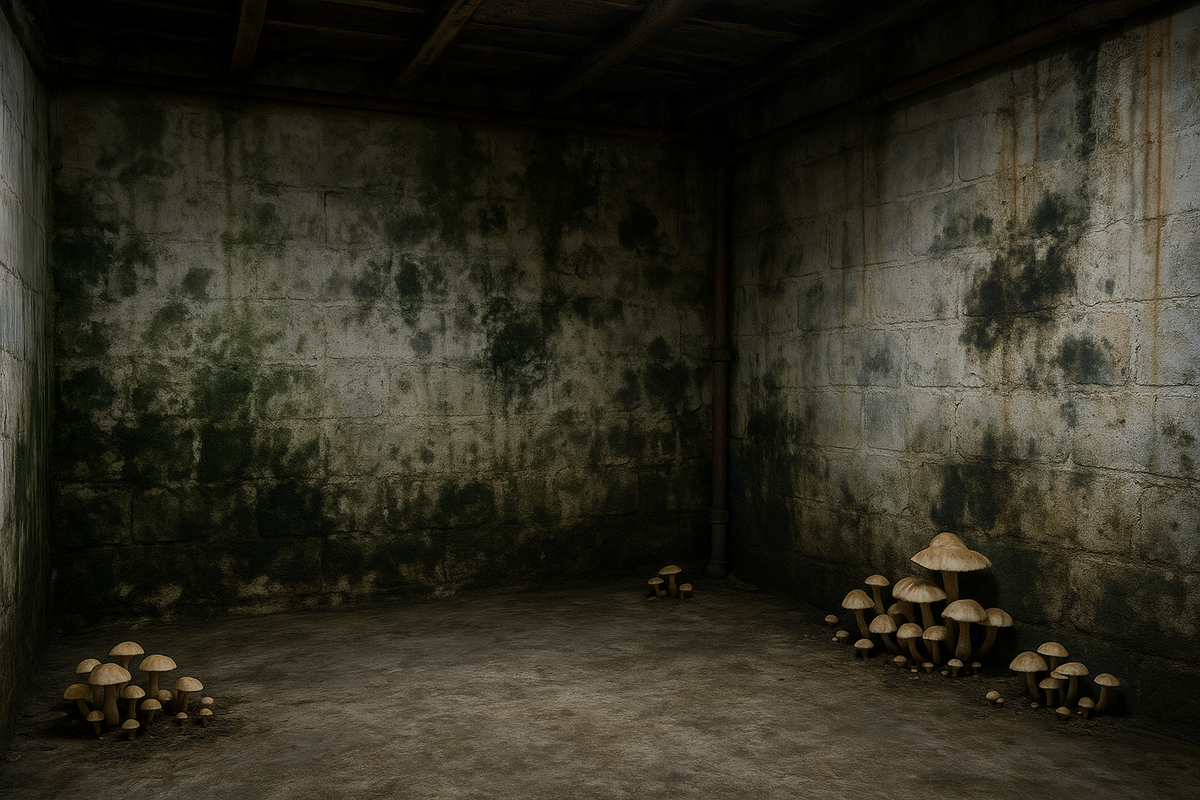
By Jenny Holly Hansen | WBN News | May 15, 2025
In the world of commercial insurance, exclusions define the boundaries of coverage. One of the most misunderstood—but increasingly important—exclusions is the Fungi and Fungal Derivatives Exclusion. If you own or manage a business, especially one in real estate, property management, hospitality, food service, or healthcare, this exclusion can significantly affect your risk exposure and insurance strategy.
What Is the Fungi and Fungal Derivatives Exclusion?
This exclusion typically eliminates coverage for losses, damage, or liability caused by fungi, mold, mildew, spores, or their byproducts (such as mycotoxins or microbial volatile organic compounds). It can be found in many commercial general liability (CGL), property, and pollution liability policies.
The language of the exclusion is often broad, applying to:
- Property damage caused by mold or fungal growth.
- Bodily injury from exposure to spores or mold-related allergens.
- Remediation costs for removing mold-contaminated materials.
- Loss of income from business interruption due to mold.
Why Do Insurers Exclude Fungi?
Fungi-related claims are notoriously difficult and expensive to resolve. Mold, for instance, can spread undetected behind walls or beneath floors, making it difficult to assess the full extent of damage. Once discovered, the remediation process can be time-consuming, costly, and potentially dangerous to human health.
From an insurance perspective, mold is often considered a preventable loss. Insurers argue that with proper maintenance—such as fixing leaks, controlling humidity, and conducting regular inspections—many mold problems can be avoided. Because of this, many insurers began adding mold exclusions to avoid being liable for these claims.
How This Exclusion Affects Businesses
1. Property Owners and Landlords
Water damage or humidity issues in commercial or residential buildings can lead to mold. If tenants claim illness or property damage due to fungal growth, and you don't have separate mold liability coverage, you could face significant out-of-pocket expenses.
2. Hospitality Industry
Hotels, spas, and resorts deal with high-moisture environments. A mold outbreak in guest rooms, pools, or HVAC systems could result in reputational damage, lawsuits, and expensive remediation—with little to no coverage under a standard policy.
3. Construction and Contractors
If mold develops as a result of construction defects or water intrusion during a project, contractors can be sued. However, the fungi exclusion may bar coverage, leaving the business exposed to costly legal fees and repair costs.
4. Healthcare Facilities
Hospitals, care homes, and clinics are under strict requirements to maintain air quality and sanitation. Mold outbreaks can be devastating, both from a liability standpoint and for patient safety, yet they may not be covered by a traditional CGL policy.
What Can Businesses Do?
- Review Your Policy
Ask your broker or risk manager to identify if your policy contains a fungi exclusion. The wording varies by insurer and jurisdiction, so a professional review is key. - Consider Endorsements or Specialized Coverage
Some insurers offer limited fungi coverage as a buy-back endorsement. Others offer pollution liability or environmental insurance policies that can include mold coverage. - Preventive Risk Management
Invest in leak detection systems, humidity control, regular maintenance, and quick response to water intrusion. Documentation of these steps can help defend against claims and potentially improve your insurability. - Understand Tenant or Client Expectations
If you're leasing space or working with sensitive industries (like healthcare or food), be clear about who is responsible for environmental hazards like mold.
Final Thoughts
The fungi and fungal derivatives exclusion is not just fine print—it’s a major limitation that can leave your business exposed if you’re not prepared. As an insurance broker, I always recommend taking the time to understand what is and isn’t covered. With the right advice and a proactive approach, you can reduce your risk and find solutions that protect your business.
Let’s Keep Talking:
Jenny is a business insurance broker with Waypoint Insurance. With 19 years experience, she will well versed in the technical aspects of business coverages.
She can be reached at 604-317-6755 or jholly-hansen@wbnn.news. Connect with Jenny on LinkedIn at https://www.linkedin.com/in/jenny-holly-hansen-365b691b/. Connect with Jenny at BlueSky: https://bsky.app/profile/jennyhollyhansen.bsky.social
Let’s Meet Up:
Jenny Holly Hansen is a cohost with Chris Sturges of the Langley Impact Networking Group. You are welcome to join us on Thursday’s from 4pm to 6pm at: Sidebar Bar and Grill: 100b - 20018 83A Avenue, Langley, BC V2Y 3R4
TAGS: #Jenny Holly Hansen #Protect Your Business #Fungi and Fungal Derivatives Exclusion



